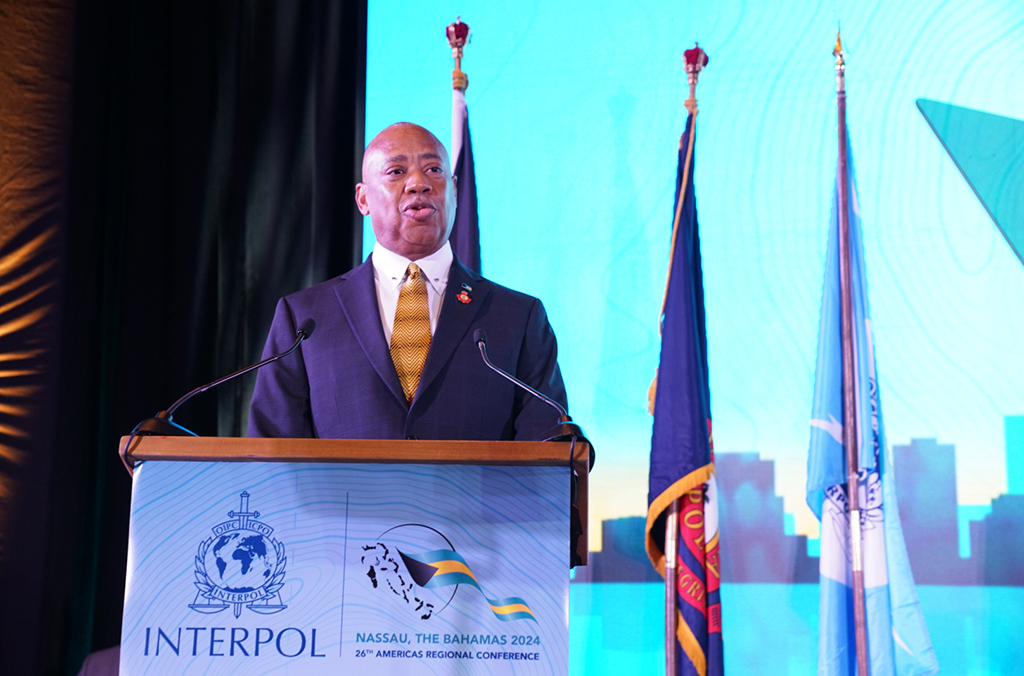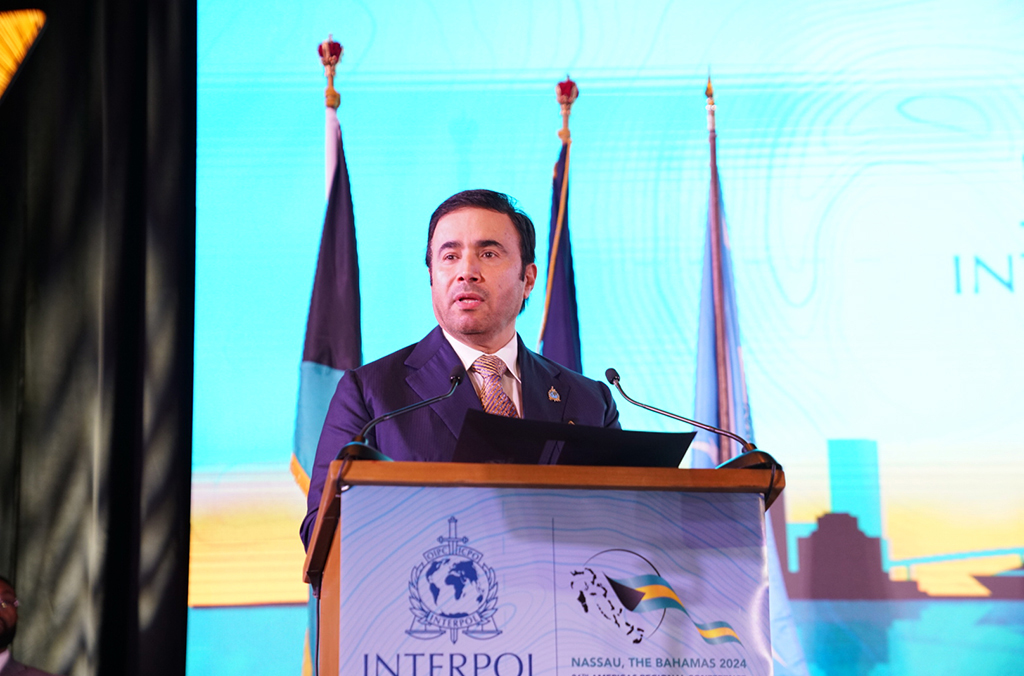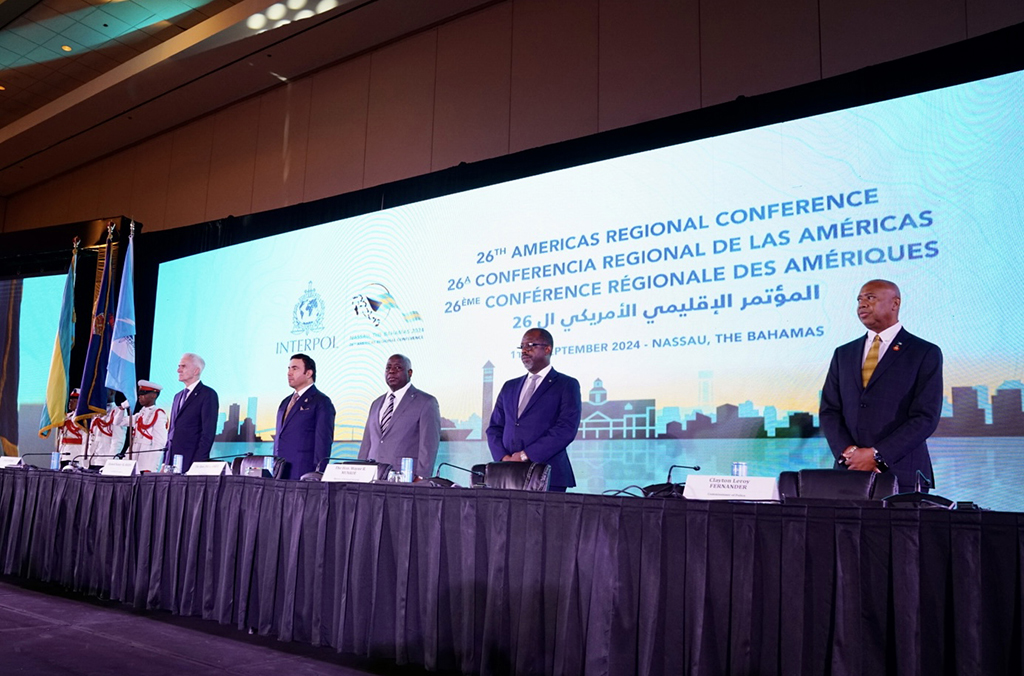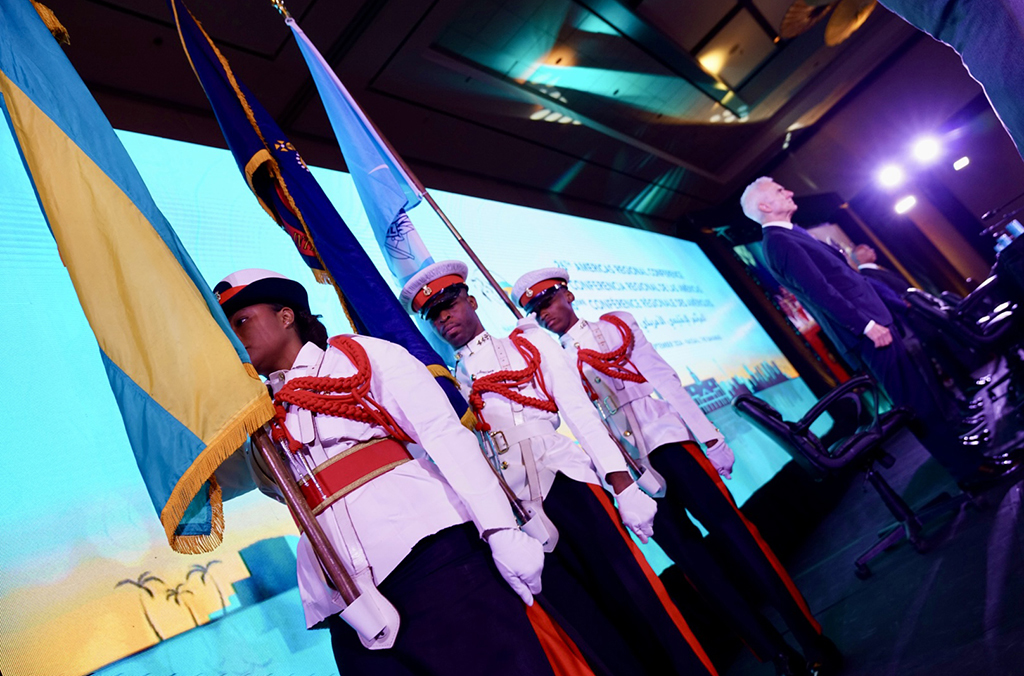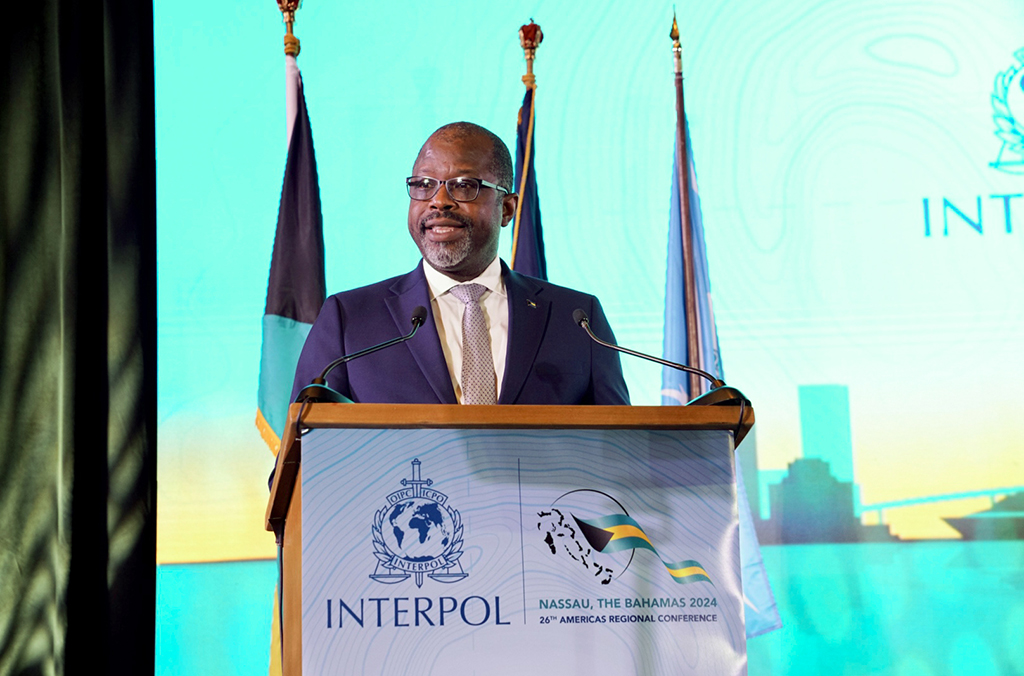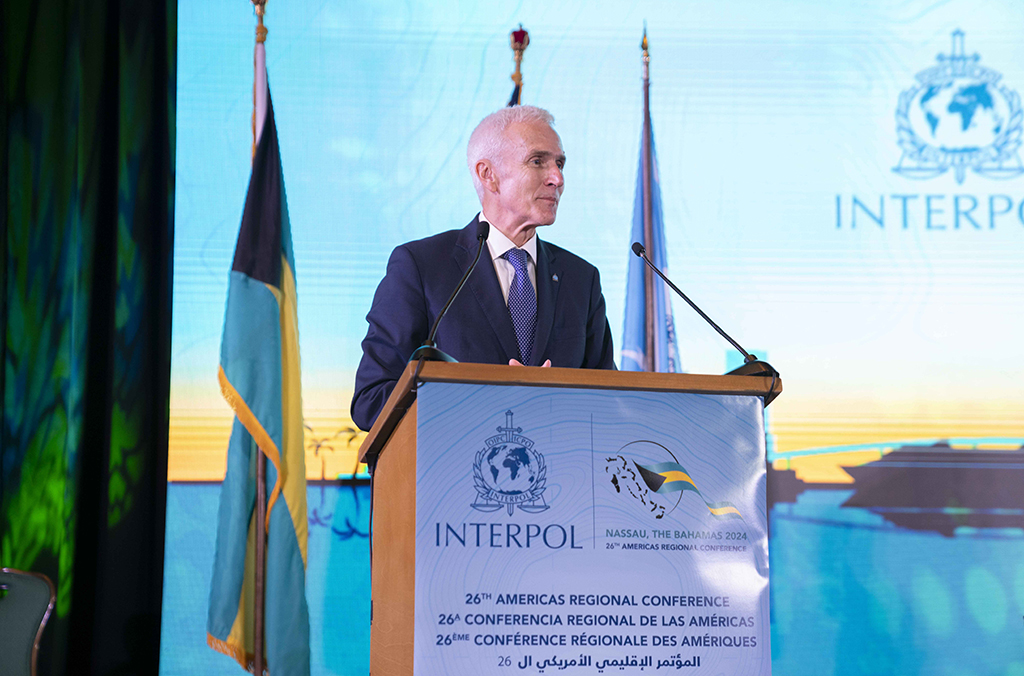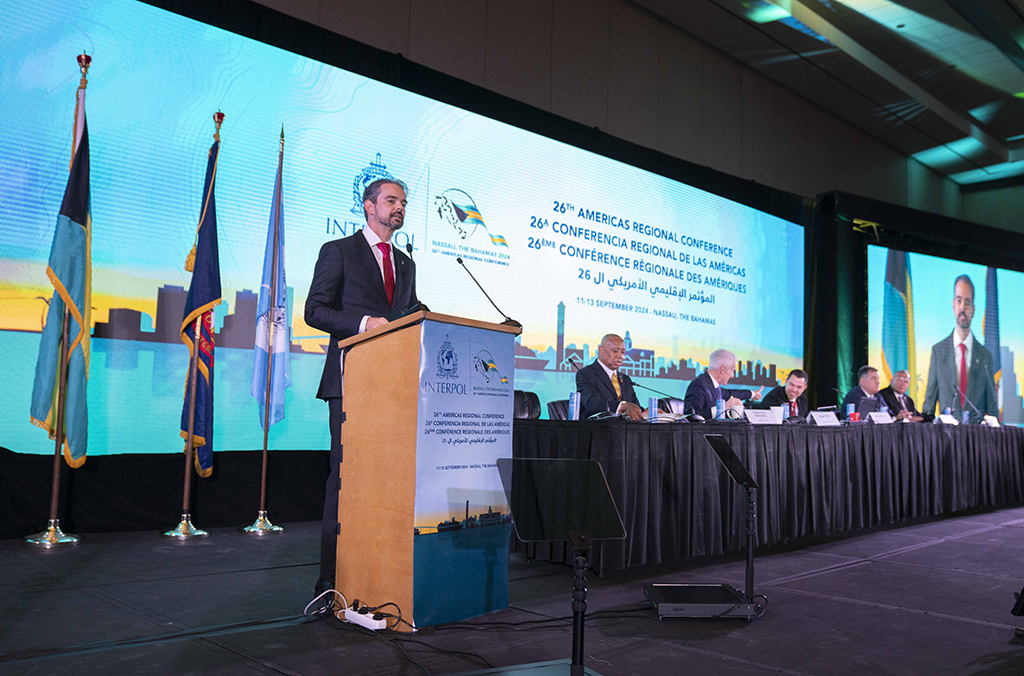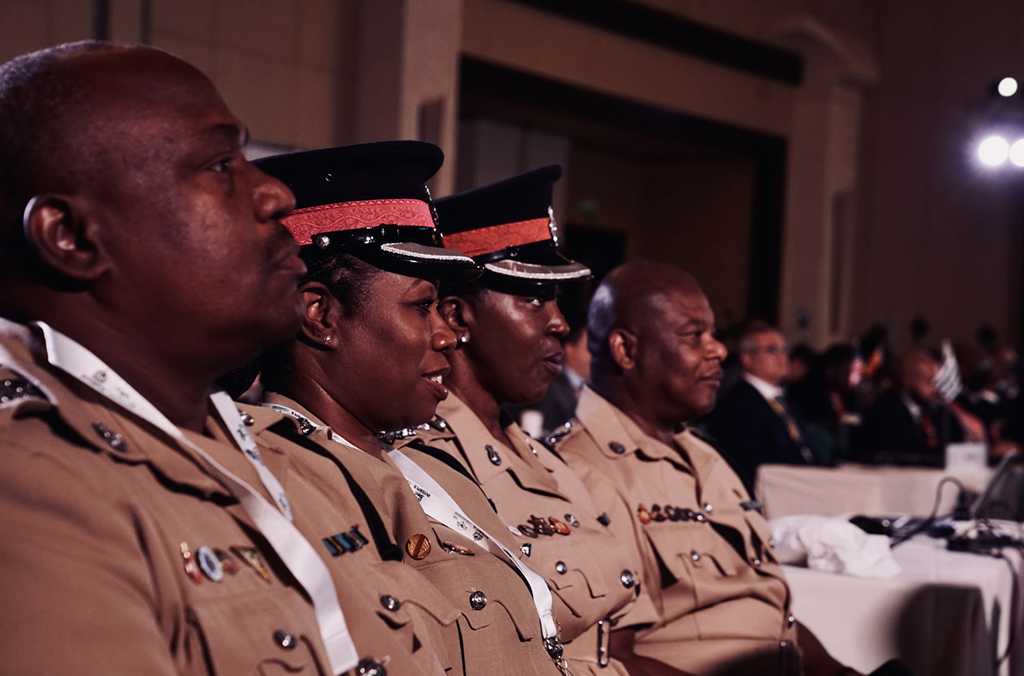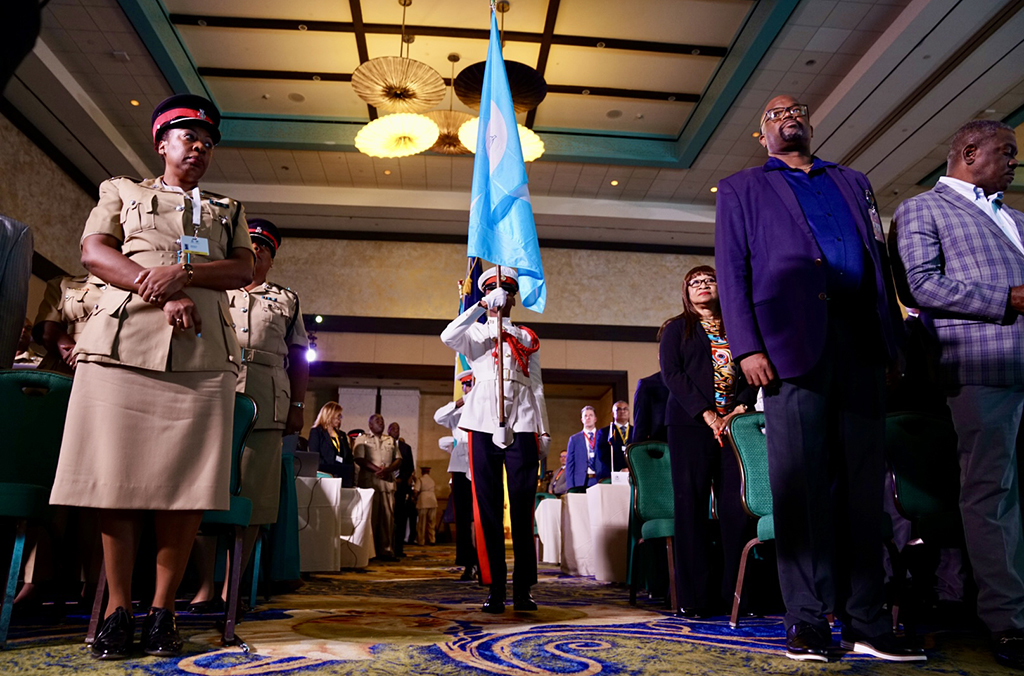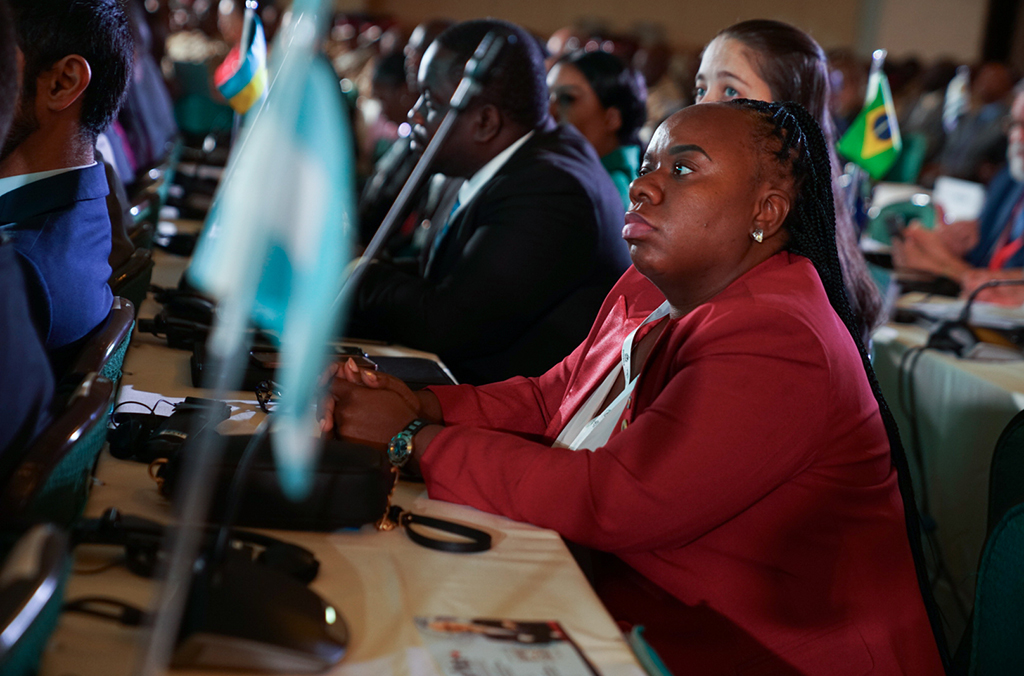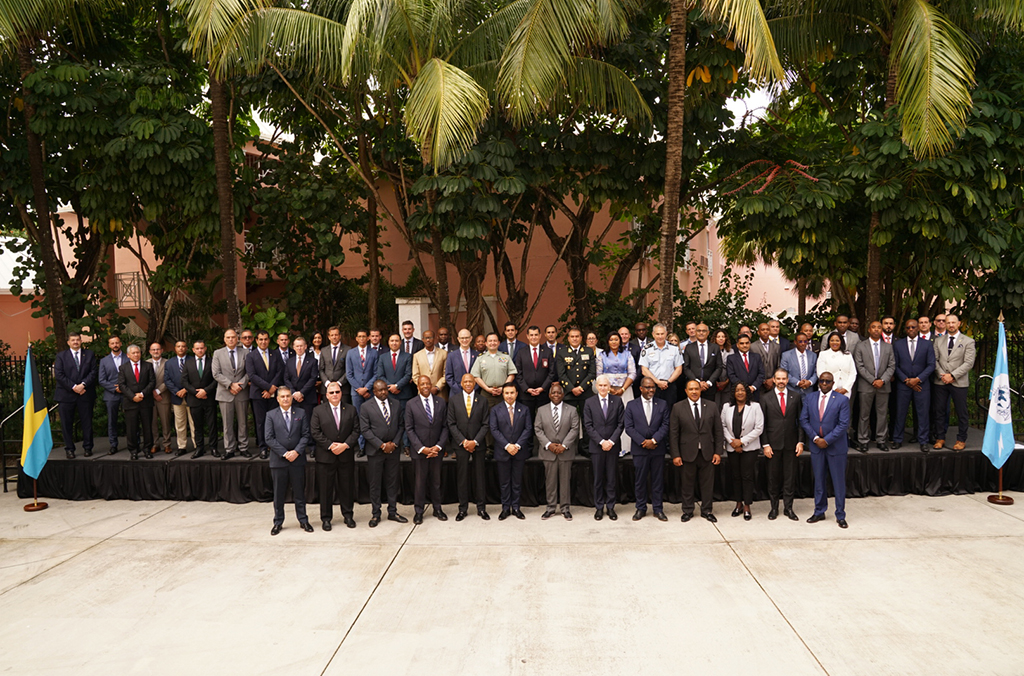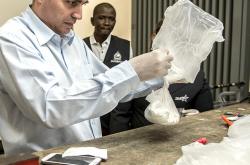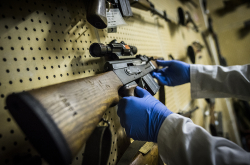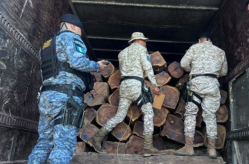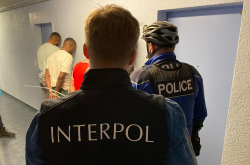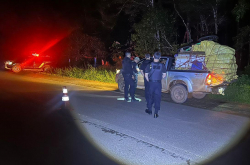NASSAU, The Bahamas – The significant threat posed by transnational organized crime and the associated increase in violence is the focus of INTERPOL’s 26th Americas Regional Conference.
The impact generative Artificial Intelligence and syndicates splintering to maximise profits are having on major crime threats such as human, drug and firearms trafficking, and cybercrime will also be discussed over the three-day (11-13 September) meeting.
The conference, attended by senior law enforcement officials from 35 countries across the region and beyond, was opened by the Prime Minister of the Bahamas, Philip Davis who said:
“Our collective success depends on our ability to work together. Pooling our resources, intelligence, and best practices.
“This shared approach strengthens our capacity to anticipate, prevent and respond to criminal activities that threaten the safety and stability of our nations.”
Operational results
Delegates will also be briefed on outcomes from established INTERPOL-coordinated operations tackling human trafficking and migrant smuggling (Turquesa), firearms (Trigger) and drug trafficking (Lionfish).
Conducted over many years, these operations not only produce results in terms of arrests and rescuing victims, they also develop strong networks of specialists enabling direct and trusted information exchange in follow-up enquiries.
INTERPOL President Ahmed Naser Al-Raisi said:
“Transnational organized crime – closely tied to drug trafficking – is a serious global threat that will require our focus this week, as it weakens public safety, governance, and economies across the Americas and the Caribbean.
“This highlights the need for a strong, coordinated approach, where INTERPOL’s global network is crucial.”
Common voice for police
INTERPOL Secretary General Jürgen Stock said:
“Police officers today are witnessing what is an unprecedented increase in transnational threats, or crises, on a global scale.
“A convergence driven by a never-ending thirst of criminal networks to expand their transcontinental grip and maximize their illicit proceeds.
“This is where INTERPOL plays a vital role, providing a common voice for police – for a safer, even if more complex, world.”
With the number of records shared by the Americas almost quadrupling over the past 10 years – from 11.6 million to just under 44 million – it is the fastest growing region in terms of police information sharing.
In addition, so far in 2024 two thirds of all arrests of internationally wanted fugitives reported to INTERPOL have involved at least one National Central Bureau in the Americas.




